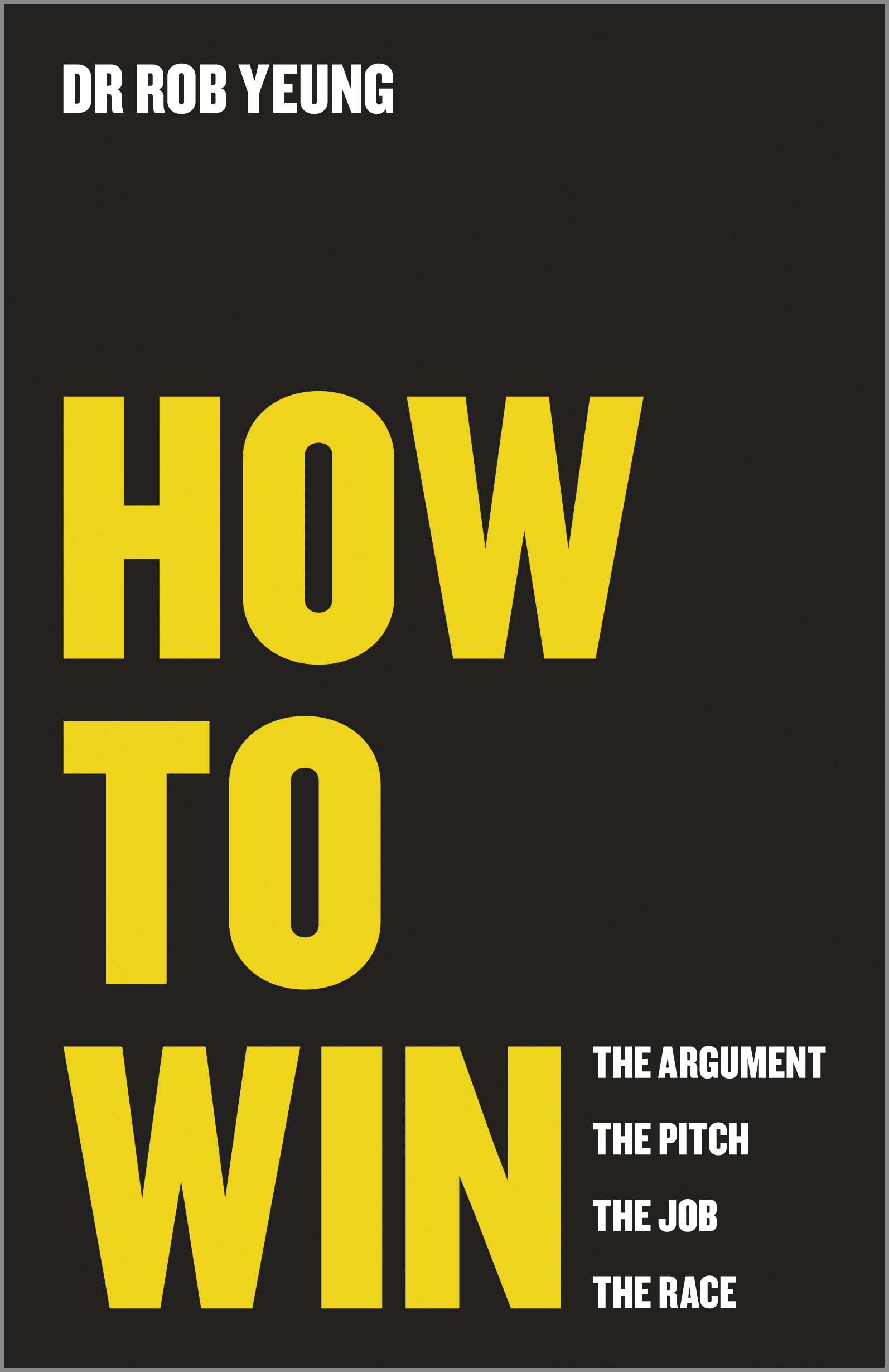Want to make 2014 the year the year you win at work, home and life in general? Rob Yeung, author of new book How to Win has researched the characteristics of successful women and has the six worth stealing
Much has been written about gender differences between men and women and why women are in fewer senior positions than men. As a research psychologist, I get frustrated because many of these pieces are merely opinion pieces, in which journalists and so-called experts talk about what they believe are the differences between women and men or their beliefs about why women lag men in the workplace. My approach is different. I don’t claim to be an expert: merely someone who reports in my books on what research tells us about women and men.
So, what does research tell us about women at work?
1. Winning women have confidence in their abilities
A 2011 study by University of New Mexico researchers asked the colleagues of both men and women leaders to rate those leaders on various skills. The men and women leaders were also asked to rate themselves.
The researchers found that colleagues tended to rate the men as less capable than the men judged themselves. Conversely, colleagues tended to rate the women as more capable than the women perceived themselves. In other words, women were considerably more likely to underestimate their talents as compared with men.
Of course, that doesn’t mean that all men overestimate their abilities and all women underestimate themselves. But that suggests that many women could do with taking a more positive view of their own skills and talents.
2. Winning women are comfortable asking for what they want
Influencing and persuading requires both ‘push’ and ‘pull’. We must both be able to ‘push’ by getting our opinions across. At the same time, we must be able to ‘pull’ by listening to others’ points of views.
Research confirms that women do tend to be more naturally empathetic and better listeners. That is, they’re generally better at the ‘pull’ aspect of influencing than men. As such, men tend to be stronger at ‘push’ or talking about what they want.
The key to being assertive is to make sure that you ask for what you want – but also to ensure that you give others the chance to speak up and share their side of the story too. So long as you ‘pull’ by listening, you have every right to ‘push’ by speaking up too.
3. Winning women build their networks strategically
Fact: both men and women who network strategically – building relationships and trading favours with colleagues in other departments and even with people in other organisations – tend to be promoted more quickly than those who don’t.
If you want to win at work, think of your work as having two equally important parts. Yes, you have to do the tasks and projects that are set for you. But also invest heavily in building relationships. So get away from your desk and chat to people in finance, human resources, IT, customer service. Grab a coffee or a sandwich lunch with someone you haven’t spoken to for a few months rather than the good friends you chat to regularly. Make a note of who you’d like to get to know and then get to know them. Build relationships before you need them and you’ll find people much more amenable when you do actually need them.
4. Winning women accept a fair share of the credit for achievements
A recent study published in Personality and Social Psychology Bulletin asked women and men to work together in small project teams. Afterwards, the researchers asked the women and men individually who did the most work. Typically, men were more likely to take credit for having made the most contribution. In contrast, women were more likely to share the credit – to say that ‘we’ or ‘my team mate’ had done the work.
So the research suggests that women often don’t take credit even when they should. Of course, no one likes a braggart. And I’m not advocating that you should start boasting in an empty fashion or claiming credit for things you didn’t do. But winning women at least take credit for the achievements that they did contribute to.
5. Winning women share stories rather than facts about themselves
Some women fear talking about their work achievements for fear of coming across as arrogant. However, the way to talk about yourself without coming across as arrogant is to share stories about what you’ve done that point to clear lessons – either about what helped you to succeed in a situation or what you could have done differently to avoid a mistake or failure.
Research tells us that stories are much more compelling than mere facts. So simply saying ‘I achieved X’ can come across as boastful. But saying ‘I encountered a certain problem and here’s how I overcame it (so you can avoid it in future)’ and then talking about the obstacles you encountered and the actions you took to deal with each one – that’s how to command a meeting without seeming conceited.
So have a think. What stories could you share with colleagues to illustrate successful ways of tackling problems?
6. Winning women remind themselves what’s important
Various studies have shown that women often believe that they are less capable in traditionally male-dominated subjects or disciplines such as maths, computing and the physical sciences. Frequently, these beliefs are influenced by the messages they receive growing up.
However, the good news is that such mind-sets are not immutable. For example, one experiment asked a group of women to do a maths test. Just before the test, half of the women were asked to write a short essay about why they wanted to succeed in life, that is, to write about their personal, most cherished values. The results of the study found that those women who reflected on their private values outperformed those who didn’t. In other words, focusing on their values helped to boost their performance.
The lesson: winning women spend time occasionally reflecting on their values. What’s important to you? What makes you get out of bed in the morning? Having a clear sense of what matters can help you to be at your best.
How to Win: The Argument, the Pitch, the Job, the Race by Dr Rob Yeung (Capstone, £10.99) is out on January, 31st, 2014

Visit his website, follow him at @robyeung
Like this article? Sign up to our newsletter to get more articles like this delivered straight to your inbox.
























































